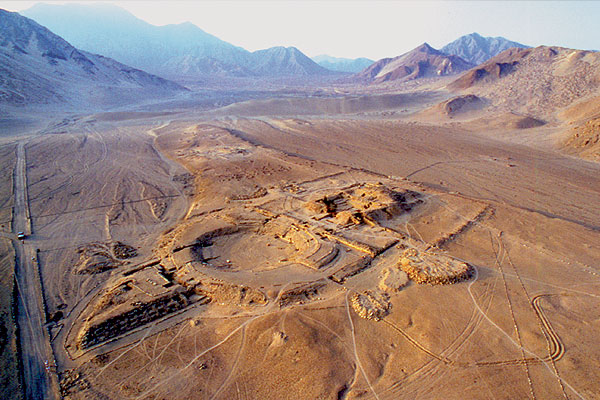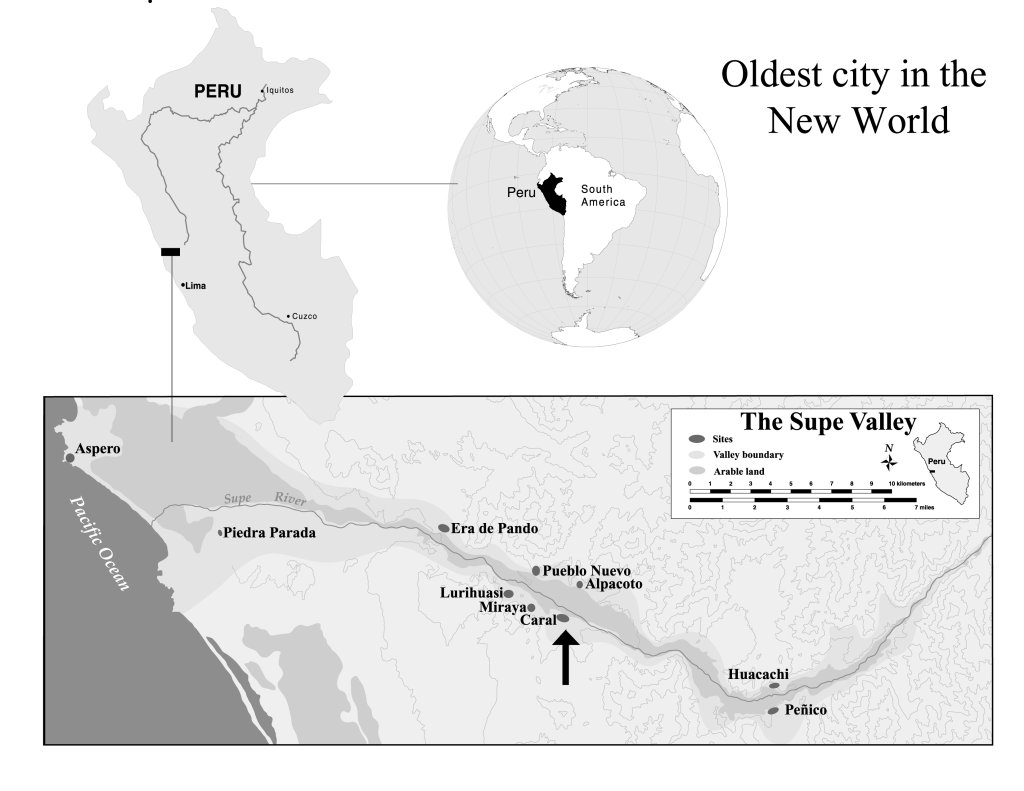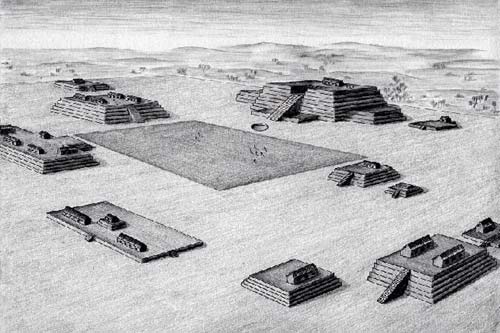Oldest City in the Americas in Danger of Being Destroyed by Locals
posted on April 1st, 2010 in Archaeology, Northern Kingdoms of Peru, Peru, Peruvian Pyramids
Authorities to Inspect Archaeological Site of Caral to Verify Alleged Attack
Farmers Have Apparently Invaded one of the Pyramids in the Area of “Era de Pando” to build a Water Reservoir
March 23, 2010
El Comercio (Peru) (translated by Kim MacQuarrie)
Representatives of the Barranca Provincial Prosecutor’s office will carry out an investigation tomorrow at the archaeological site known as “Era of Pando,” a city consisting of 26 buildings belonging to the Caral culture, where farmers are apparently destroying this cultural heritage…
As reported by Supe’s Caral Special Archaeological Project, (PAECS), the occupation on the part of the “Era de Pando” local farmers’ association will result in a water reservoir for irrigation located in one of the [ancient] pyramids and a cleared area for cultivation amid one of the plazas at the site.
The Caral archaeological project has worked in the area for about a month. However, the team of archaeologists and the field staff are often harassed [by the locals], so that the project has sought support from the National Police.
CONTROVERSY
The farmer’s association defends its position with alleged land titles. However, the PAECS states that in 2000 the site was declared a “National Cultural Heritage ” by the National Institute of Culture, which precludes its use for other purposes.
[Peruvian] Archaeologist Ruth Shady, who announced the Caral civilization to the world, explained that the site is contemporary with the famous holy city [of Caral]. Despite not having the same monumentality, the site covers more land (79 hectares) than America’s oldest city [of Caral; 2,600-2,000 B.C.), she said.
The site (or Era de Pando] is located in the middle of a valley bottom on the right bank of the Supe River. Its buildings are located on the bottom of a dry creek bed. The disposition, distribution and proximity of the buildings reveal the urban settlement planning.
MORE PROBLEMS
It was reported that the Barranca prosecutors’ visit–scheduled for 10:00 A.M.–will also include the inspection of problems at other archaeological sites in the valley. For example, within the buffer zone of Lurihuasi, an area [with] pre-ceramic ruins, buildings are being constructed with modern materials, which are altering the environment.
One hypothesis currently surrounding the [archaeological] site of “Era de Pando” is that it was the most powerful urban center during the last years of the Caral civilization.



